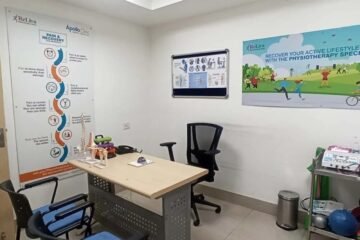Menopause is a deeply individual experience, marked by a cascade of physiological, emotional, and cognitive shifts. For neurodiverse individuals—those who experience and process the world in ways that diverge from the neurotypical majority—this transition can be especially complex. Autism, ADHD, sensory processing differences, and other neurodivergent conditions often intersect with menopause in ways that magnify the challenges and demand tailored strategies for support.
A Collision of Systems
Menopause ushers in dramatic hormonal fluctuations, most notably the decline of estrogen and progesterone. These changes influence the reproductive system, cognition, mood regulation, and sensory perception. For neurodivergent individuals whose nervous systems are already uniquely wired, the impact can be intense.
Sensory sensitivities may become more pronounced. Executive functioning—already an area of difficulty for many with ADHD or autism—can deteriorate further under the weight of brain fog and fatigue. Emotional dysregulation, a common thread in many neurodiverse profiles, may spiral when compounded by hormonal volatility.
This isn’t just a layering of symptoms; it’s an amplification.
Misdiagnosis and Missed Connections
One of the core issues lies in recognition. Neurodiverse individuals often struggle to articulate internal experiences in ways that align with traditional medical expectations. Symptoms like irritability, anxiety, and forgetfulness are frequently dismissed or misattributed—either to their existing diagnosis or to external stressors.
Conversely, many neurodiverse women reach midlife without having received a formal diagnosis at all. It’s only when menopause hits and coping mechanisms erode that deeper questions about identity, cognition, and lifelong patterns arise. In these cases, menopause becomes the flashpoint for a broader neurodiversity awakening—a double upheaval that is both liberating and disorienting.
The Overlap of Symptoms
There is a significant overlap between menopause-related symptoms and traits common in neurodivergence. Consider the following intersections:
- Sleep Disturbances: A hallmark of both menopause and neurodivergent conditions, poor sleep exacerbates sensory overload and emotional fragility.
- Cognitive Fog: Executive dysfunction, memory lapses, and difficulty concentrating are intensified during hormonal shifts.
- Mood Swings: Emotional lability can be challenging to distinguish from baseline neurodivergent tendencies, complicating diagnosis and treatment.
- Sensory Dysregulation: Menopause often increases heat sensitivity, discomfort with certain fabrics, and intolerance to noise, already common issues for autistic individuals.
These overlaps mean that menopause management for neurodiverse people must go far beyond traditional models.
Tailoring Strategies for Neurodivergent Needs
Managing menopause in a neurodiverse context requires a layered, empathetic approach. Standard advice often falls short. Instead, solutions must be flexible, sensory-informed, and deeply individualized.
1. Clear Routines and Predictability
Structure is often a sanctuary for neurodiverse individuals. Menopause, with its unpredictability, threatens that. Building external scaffolding—through planners, visual schedules, or digital reminders—can counteract internal chaos. Consistent routines around sleep, meals, and relaxation time can stabilize mood and reduce cognitive load.
2. Sensory-Smart Self-Care
Self-care for the neurodiverse brain must account for sensory comfort. Breathable fabrics, noise-canceling headphones, and gentle lighting can reduce overwhelm. Thermal regulation strategies—like wearable cooling devices or weighted blankets—may help manage hot flashes while providing calming input.
3. Communication Support
Navigating healthcare conversations can be daunting, especially when emotional regulation is compromised. Bringing a support person to appointments or preparing notes in advance can ensure accurate symptom reporting. Healthcare professionals should be trained to recognize communication styles that differ from neurotypical norms, fostering trust and reducing misdiagnosis.
4. Exploring Treatment Options
Medical intervention should always be based on personalized care. For many, understanding the full spectrum of hormone replacement therapy benefits can be transformative. Beyond alleviating physical symptoms like night sweats or vaginal dryness, HRT may also stabilize mood swings and mitigate the severity of cognitive disturbances. This can be especially helpful for neurodiverse individuals, whose brains are particularly sensitive to neurotransmitter fluctuations.
While HRT is not suitable for everyone, its potential merits should be evaluated in light of the unique challenges faced by this population. In some cases, combining HRT with mental health support, nutritional interventions, or occupational therapy offers a more holistic path forward.
The Role of Community and Advocacy
Neurodiverse individuals often feel isolated, doubly so when navigating a life stage that is already shrouded in stigma. Creating spaces where both neurodiversity and menopause can be discussed openly is crucial. Peer-led support groups, online forums, and inclusive health networks can foster validation and shared learning.
Advocacy also plays a pivotal role. By challenging the one-size-fits-all narratives of menopause and pushing for research that includes neurodiverse bodies and minds, we lay the groundwork for more inclusive healthcare systems. This includes recognizing the nuanced way hormone replacement therapy benefits may manifest in neurodivergent individuals and ensuring accessibility to informed, compassionate care.
A New Framework for Midlife
Menopause is often seen as a biological endpoint—a slow descent into decline. But for neurodiverse individuals, it can be something else entirely: a reconfiguration, a moment of reckoning that demands reexamining identity, values, and needs. With proper support, this transition can lead to symptom relief and profound personal evolution.
It begins with recognizing the interplay between neurology and endocrinology, rejecting outdated paradigms that fail to consider neurodiverse realities, and embracing strategies—medical, emotional, and sensory—that speak to the full experience of being both neurodiverse and menopausal.
For those willing to advocate, adapt, and seek connection, there is strength in this junction. And within that strength, the power to thrive, not despite the changes but through them.




